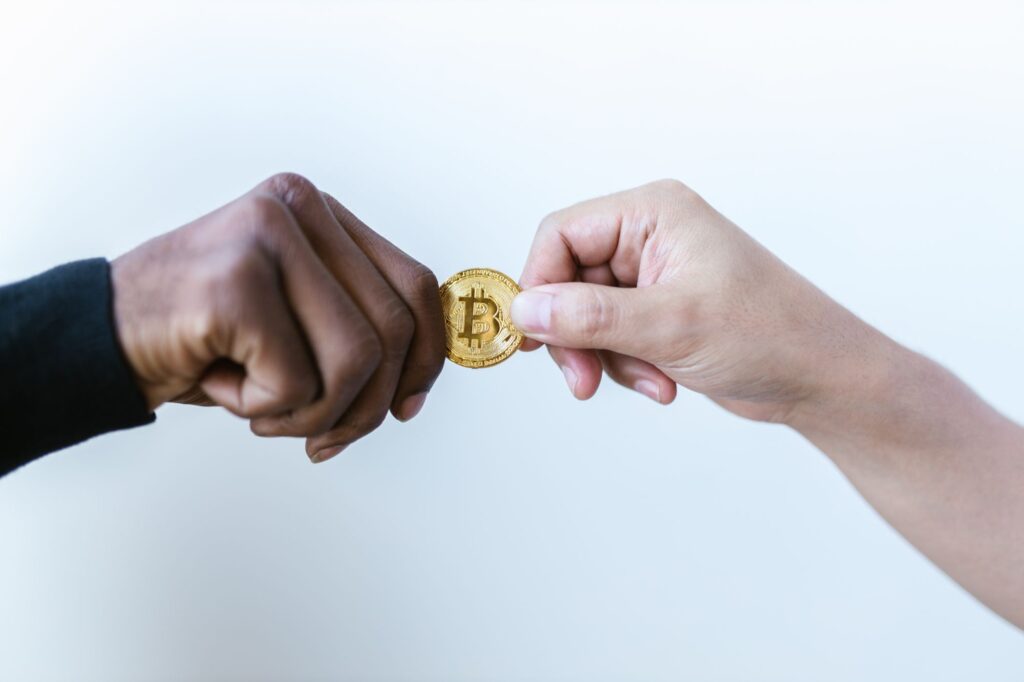With economic challenges pressing hard in Nigeria, many people are exploring various avenues to boost their income. Peer-to-peer (P2P) trading has recently become an accessible way for many Nigerians to make money online. From cryptocurrency exchanges to currency conversions, P2P trading offers multiple avenues to generate profit with relatively low barriers to entry. This guide dives deep into P2P trading, helping you understand how it works, its benefits, risks, and tips to succeed. Let’s explore how you can start making money online with P2P trading in Nigeria.
Contents
- Understanding P2P Trading: What It Is and How It Works
- Benefits of P2P Trading in Nigeria
- Choosing a P2P Platform in Nigeria
- Setting Up Your P2P Trading Account
- How to Make Money Through P2P Trading
- Risks of P2P Trading and How to Manage Them
- Tips for Successful P2P Trading in Nigeria
- Understanding Nigerian Tax Implications for P2P Trading
- Growing Your Income Through P2P Trading
- Frequently Asked Questions
- Conclusion
Understanding P2P Trading: What It Is and How It Works
P2P trading, or peer-to-peer trading, involves direct transactions between two people without needing a traditional financial intermediary like a bank. In the world of cryptocurrency, P2P trading platforms facilitate these exchanges by providing a marketplace where users can list their offers and set terms for the transaction. Unlike regular crypto exchanges, where an automated system matches buyers and sellers, P2P platforms allow users to connect with one another directly.
For example, if a Nigerian trader wants to buy Bitcoin, they can search for sellers offering Bitcoin at their desired price and payment method. Once the terms are agreed upon, the transaction is made directly between the buyer and seller, often with the platform holding the cryptocurrency in escrow until the payment is verified.
Benefits of P2P Trading in Nigeria

P2P trading offers several advantages, particularly in the Nigerian context. Here are some of the main reasons it’s becoming popular:
- Lower Fees: Traditional exchanges charge transaction fees, but P2P platforms usually offer lower or even zero transaction fees, making it cheaper for traders.
- Payment Flexibility: P2P trading platforms often allow multiple payment options, including bank transfers, mobile money, and sometimes even cash, which is convenient for Nigerian users.
- Better Exchange Rates: P2P platforms sometimes offer more competitive exchange rates than traditional exchanges, allowing for higher profits.
- Anonymity and Privacy: P2P trading allows more privacy since transactions happen directly between traders without extensive personal information disclosure.
Choosing a P2P Platform in Nigeria
There are several P2P trading platforms to choose from, each with unique features and fees. Some of the popular ones among Nigerian traders include Binance P2P, Paxful, and LocalBitcoins. Here’s a quick look at each:
- Binance P2P: A secure and widely trusted platform, offering low fees and various payment options for Nigerian Naira transactions.
- Paxful: Known for its flexible payment methods, including bank transfers and gift cards, Paxful is a popular choice for Nigerians trading Bitcoin.
- LocalBitcoins: One of the earliest P2P platforms, LocalBitcoins offers an established network and a user-friendly interface.
When selecting a P2P platform, consider factors like security features, fees, the availability of your preferred payment methods, and ease of use.
Setting Up Your P2P Trading Account
Once you’ve chosen a platform, follow these steps to set up an account:
- Register on the Platform: Visit the chosen platform’s website, sign up with your email, and complete the necessary identity verification steps.
- Secure Your Account: Enable two-factor authentication (2FA) to add an extra layer of security.
- Link Your Payment Method: Add your preferred payment method to allow fast transactions.
- Complete Profile Verification: Verification steps may include submitting an ID or linking your bank account. Completing this step will often improve your account’s trust level and increase transaction limits.
How to Make Money Through P2P Trading
The core of making money with P2P trading lies in understanding market trends, seizing profitable opportunities, and ensuring secure transactions. Here are several ways you can earn:
1. Arbitrage Trading
Arbitrage is the process of buying an asset at a lower price on one platform or in one currency and selling it for a higher price elsewhere. For example, you could buy Bitcoin at a lower price on Binance and sell it for a higher price on LocalBitcoins. Arbitrage trading requires you to monitor prices across platforms to spot differences and act quickly.
2. Taking Advantage of Price Fluctuations
Cryptocurrency prices are known for their volatility. By tracking trends and predicting short-term price movements, you can buy low and sell high on the same P2P platform. This strategy, known as speculative trading, can be profitable but also risky if prices move in the opposite direction.
3. Setting Your Own Exchange Rates
Some P2P platforms allow you to create your own trading offers with custom rates. You can set a favorable exchange rate that includes a small profit margin. When buyers or sellers accept your terms, you make a profit through the rate difference.
4. Capitalizing on Local Payment Methods
Some buyers prefer using specific payment methods like bank transfers or mobile money, which may not be widely available on international exchanges. By offering these local payment options, you can attract more customers and charge slightly higher rates.
Risks of P2P Trading and How to Manage Them
Every trading method has its risks, and P2P trading is no exception. Here’s what to watch out for:
- Scams and Fraud: Fraudulent buyers and sellers may attempt to scam you. Only use trusted platforms with secure escrow services, and avoid dealing with traders who lack positive reviews.
- Market Volatility: Cryptocurrencies can be highly volatile, and a sudden drop in value could lead to losses.
- Payment Issues: Sometimes, buyers might delay or fail to complete payments. Always confirm that funds have been received before releasing your cryptocurrency from escrow.
Tips for Successful P2P Trading in Nigeria
- Start Small: Begin with small trades to understand the platform’s workings and avoid significant financial loss.
- Check User Ratings: Most P2P platforms have rating systems for buyers and sellers. Stick to users with positive ratings to reduce the risk of fraud.
- Use Escrow Services: Only release funds once the payment is confirmed.
- Stay Updated with Market Trends: Monitor cryptocurrency prices and news to predict movements and make timely decisions.
- Diversify Payment Methods: Offering multiple payment options attracts more buyers and increases your chances of completing transactions.
Understanding Nigerian Tax Implications for P2P Trading
In Nigeria, cryptocurrency is still a relatively unregulated sector, but tax authorities are paying closer attention. Profits from P2P trading are generally subject to taxation under capital gains. To avoid potential issues, consider maintaining records of your trades and consulting tax professionals familiar with Nigerian crypto regulations.
Growing Your Income Through P2P Trading
Once you gain confidence, there are ways to increase your earnings from P2P trading:
- Scale Up Your Investments: Gradually increase the amount of cryptocurrency you trade as you become more comfortable.
- Establish a Good Reputation: Reliable traders with positive reviews often attract more buyers.
- Develop a Trading Schedule: Some times of the day might see more price fluctuations, allowing you to make profitable trades. Observing these trends can help maximize your earnings.
- Join Communities and Groups: Online communities, such as Nigerian crypto forums or P2P groups, can offer valuable insights and connections.
Frequently Asked Questions
Here are answers to frequently asked questions that you might find helpful.
What Is the Minimum Amount Needed to Start P2P Trading in Nigeria?
The minimum amount for starting P2P trading can vary based on the platform you choose. Generally, many exchanges allow traders to begin with as little as ₦5,000 to ₦10,000. However, it’s often recommended to start with a comfortable amount you can afford to lose, especially if you’re new to the trading process. Starting with a small amount helps you get familiar with the trading process without risking too much, allowing you to gain experience and gradually build your trading portfolio.
How Can I Ensure My Funds Are Safe in P2P Trading?
To keep your funds secure, choose a reputable P2P trading platform with robust security protocols, like Binance, Paxful, or Remitano. Verify the identity of buyers and sellers on the platform and opt for trades with high-rated or verified users. Use the platform’s escrow service to protect your transaction until both parties meet the agreed terms. Additionally, activate two-factor authentication (2FA) on your account for an added layer of security.
Can I Make Money from P2P Trading Without Large Investments?
Yes, you can make money through P2P trading without needing a large investment. Since P2P trading profits come from buying low and selling high, even small price differences can yield profits over time. You can start small, gradually increasing your investment as you become more experienced. Many traders also make money by facilitating trades for others and earning a small margin on each transaction. Building a steady income is possible by consistently making profitable trades, even with smaller amounts.
How Do I Know the Right Time to Buy or Sell in P2P Trading?
Identifying the best time to buy or sell in P2P trading involves market research and observing price trends. Many traders follow market news, technical analysis, and signals to make informed decisions. You can start by studying the price trends of assets you’re trading, such as Bitcoin or Ethereum, as their prices can fluctuate based on market sentiment. You may also want to follow economic updates and indicators like interest rates or currency fluctuations, which can impact cryptocurrency prices.
What Are the Key Risks of P2P Trading in Nigeria?
The main risks of P2P trading include market volatility, scams, and potential transaction delays. Cryptocurrency prices are highly volatile, which can lead to losses if the market moves against you unexpectedly. Scams are another risk, as fraudulent buyers and sellers might attempt to deceive traders. Finally, transaction delays can sometimes occur due to network congestion or issues with payment processors. Staying vigilant, trading on reputable platforms, and confirming transactions through escrow can help mitigate these risks.
How Does P2P Trading Differ from Traditional Cryptocurrency Exchanges?
In P2P trading, buyers and sellers deal directly with each other, while traditional exchanges facilitate trades through an order book where users don’t directly interact. P2P trading offers more flexible payment options and localized pricing, while traditional exchanges offer faster, automated trades at market prices. P2P trading often allows users to trade in local currency, which can make it easier to access and conduct trades without international banking complications.
Can I Automate My P2P Trading Transactions?
Some platforms offer automation tools, but P2P trading often involves manual steps due to the personal nature of each transaction. You can set price alerts or notifications to track market movements and help with timing trades. However, full automation is limited on P2P platforms compared to centralized exchanges where you can set automated orders. Since P2P transactions involve human verification and unique payment methods, they generally require manual confirmation for each trade.
Are There Any Hidden Fees in P2P Trading?
While most P2P platforms do not charge trading fees, some may have small fees associated with certain payment methods or withdrawal processes. For instance, banks may charge fees for currency conversions or transfers, and platforms might have minimal fees for escrow services or cryptocurrency withdrawals. Always check the platform’s fee schedule to understand any additional costs you may incur during the trading process.
Can I Trade Any Cryptocurrency on P2P Platforms?
The availability of cryptocurrencies on P2P platforms depends on the platform itself. Major P2P exchanges like Binance P2P and Paxful support popular cryptocurrencies like Bitcoin, Ethereum, and USDT, but may not offer every available crypto. Some P2P platforms only support a limited selection, which typically includes the most in-demand or stable coins. It’s advisable to check the list of supported assets on your preferred P2P platform before signing up if you’re interested in specific cryptocurrencies.
Conclusion
P2P trading has emerged as a viable option for Nigerians seeking additional income online. With the flexibility to choose payment methods, competitive exchange rates, and privacy, P2P trading aligns well with Nigeria’s evolving digital economy. Whether you’re interested in arbitrage, price speculation, or simply want to provide local payment options, P2P trading provides a unique way to profit from the cryptocurrency market. By understanding the basics, implementing smart strategies, and staying vigilant about security, you can unlock the potential of P2P trading and take your first steps toward financial independence in Nigeria.




